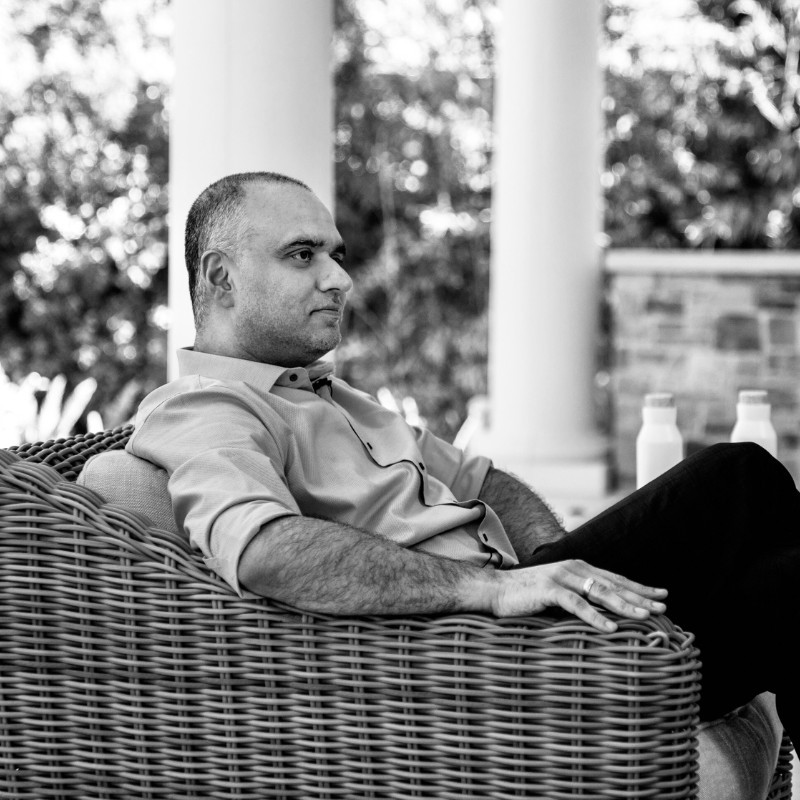Entrepreneur Case Studies
Bootstrapping a FinTech Startup by Piggybacking with Services: Quavo Co-Founder David Chmielewski (Part 3)
David Chmielewski: We established Quavo as a virtual company. We used most of the methodology that we learned at BoA. How do you run a remote company? We all decided to leave our positions and start the company.
We knew our platform like what we wanted to build on. We had a general idea of what we wanted to do. We wanted to work in financial services. We wanted to build products. We wanted them to be repeatable from one financial institution to another. It was very difficult to bootstrap from that.
>>>1Mby1M Virtual Accelerator Investor Forum: With Dheeraj Pandey, Founder of Nutanix (Part 2)
Sramana Mitra: Our focus is on the early stage. Let’s double-click down on your early-stage work. How do you define early-stage?
Dheeraj Pandey: I don’t believe in spray-and-pray. I get to know someone over five to seven meetings and sometimes tenacity helps as well. They must succeed if they’re tenacious. In the world of sales, I basically call it fearless. Sometimes we would use the word shameless. You cannot have shame if you’re asking for something. We do Series A and Series B as well. We started out with biotech and life sciences, but we’re looking at software more and more. It’s across geographies – US and Bangalore.
>>>Bootstrapping a FinTech Startup by Piggybacking with Services: Quavo Co-Founder David Chmielewski (Part 2)
Sramana Mitra: Why were you looking for remote work?
David Chmielewski: I had found my wife at Auto Owners, got married, and didn’t want to leave. I grew up in Michigan. I still live there. I wanted to have the ability to spread my wings a little bit, but I knew it wasn’t necessarily going to be an option to stay in Michigan with an on-premise job. I found this remote job.
Sramana Mitra: How did you find a remote job back then?
>>>1Mby1M Virtual Accelerator Investor Forum: With Dheeraj Pandey, Founder of Nutanix (Part 1)

Dheeraj Pandey, founder of Nutanix and DevRev. The conversation spans a variety of topics and has some brilliant insights into the gaps in the tech industry.
Sramana Mitra: We’re going to continue the conversation we’ve had where we talked about his background as a founder of a successful high-growth company. We’re going to talk about investment today. Let’s start by however you want to introduce yourself and your companies.
>>>Bootstrapping a FinTech Startup by Piggybacking with Services: Quavo Co-Founder David Chmielewski (Part 1)

Dave transitioned from a developer to an entrepreneur by leveraging his solid domain knowledge in a particular area of FinTech: dispute resolution for credit card transactions. He and his co-founders effectively used bootstrapping using services and piggybacked on the Pega Systems platform. Read on to learn more about his journey.
Sramana Mitra: Let’s start at the very beginning of your journey. Where are you from? Where were you born, raised, and in what kind of background?
>>>A Journey into Personalized Luxury Fashion: Editorialist YX CEO Rafael Ortiz (Part 5)
Sramana Mitra: Is there also a special category of boutiques or designers? I have a very good friend whom I hired out of Bergdorf Goodman in 1999 to be my VP of Merchandising – Bruce Pask. His partner is Donald Dean who’s a couture designer. He has a ready-to-wear line, but he’s also very much a custom designer.
What category of designers do you work with? Where do you get these designers? I found great small designers when I traveled. Is that something that can be accessed?
>>>A Journey into Personalized Luxury Fashion: Editorialist YX CEO Rafael Ortiz (Part 5)
Sramana Mitra: So tell me more about what happened when you launched it?
Rafael Ortiz: The business was an app for digitizing your wardrobe. The thinking was, we would digitize everything in your closet and provide you with styling services. We would create outfits of all the items in your closet and use that as a basis to generate recommendations for what you should then buy. There was a bit of service. We’re styling you as the value-add and then, hopefully, doing great recommendations all in this app.
>>>A Journey into Personalized Luxury Fashion: Editorialist YX CEO Rafael Ortiz (Part 4)
Sramana Mitra: If I remember correctly, NexTag was a vertical search engine right? These half a million keywords were all within the domain of electronics.
Rafael Ortiz: Initially yes. We added other categories like home goods and clothing.
Sramana Mitra: How big a business did the tech product vertical search engine become?
Rafael Ortiz: By the time we sold it, the entire business was doing $200 million in revenue. The tech portion of that was over half.
>>>